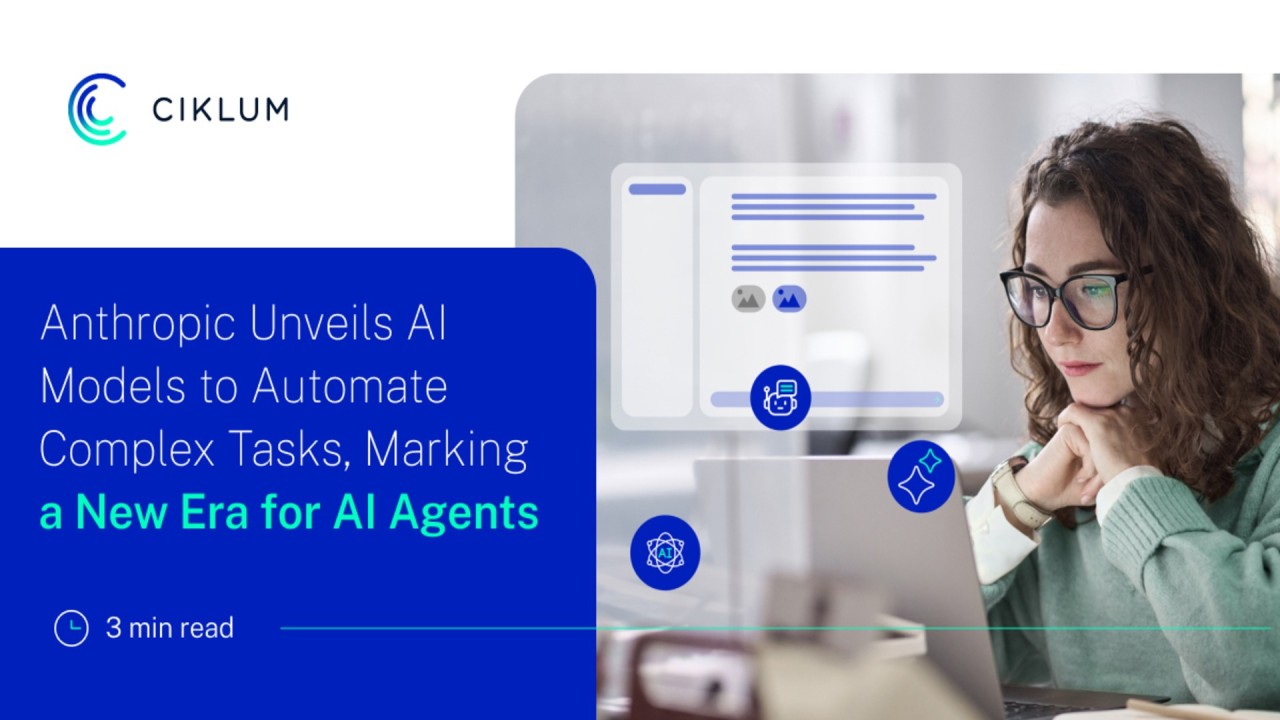
Anthropic Unveils AI Models to Automate Complex Tasks, Marking a New Era for AI Agents
Anthropic, an AI startup backed by tech giants Alphabet and Amazon, has recently introduced an innovative feature within its updated artificial intelligence models. This new development brings the concept of autonomous agents to the forefront, with AI now capable of performing complex computer tasks such as moving the mouse, clicking, and typing – essentially automating interactions typically reserved for human users. This breakthrough represents a major step in the evolution of AI models beyond traditional chatbots, setting the stage for more sophisticated applications in industries from software development to education.
Advanced "Computer Use" Feature for Developers
In an interview, Anthropic's Chief Science Officer, Jared Kaplan, shed light on the new "computer use" feature, which enables AI to carry out multi-step actions without human intervention. According to Kaplan, this new ability allows AI to "move the mouse, click on specific areas, and type commands to complete intricate tasks." These tasks can range from writing code for websites to seamlessly using applications like Google Search or Apple Maps to organize complex workflows, such as planning a day trip or researching business solutions.
This groundbreaking feature is designed with software developers in mind, offering them tools to significantly reduce repetitive tasks, enhance productivity, and streamline workflows. The ability for AI to autonomously handle these actions means developers can focus on more strategic aspects of their projects, leveraging AI agents as reliable co-workers. By cutting down on manual inputs, developers can minimize errors and accelerate time-to-market for their software products.
Three AI Models for Varied Needs
Anthropic’s latest releases expand the capabilities of its AI models under the Claude family, offering developers three versions with varying price points and performance levels. The company recently updated two of these models – Sonnet, the mid-tier model, and Haiku, the entry-level model. Notably, Haiku 3.5, the newest version, has shown an impressive ability to generate computer code at a level that, according to Kaplan, is "almost comparable" to Sonnet, released earlier in the year. However, users will have to wait until later this year for updates to Opus, the highest-performing model in Anthropic's AI portfolio.
Commitment to Responsible AI Use
While the AI-powered automation tool is currently exclusive to the updated Claude 3.5 Sonnet model, the company is already considering broader applications. Anthropic is keen to ensure the responsible use of this technology, embedding safeguards to prevent misuse for spam, fraud, or election interference. Despite its advanced capabilities, Kaplan acknowledged that the AI system isn't flawless and still makes occasional errors. However, with continuous feedback from developers, these limitations are expected to be addressed in future iterations.
领英推荐
Mike Krieger, co-founder of Instagram and Chief Product Officer at Anthropic, is actively leading the company’s efforts to refine the tool based on feedback from business customers. Krieger also expressed a personal interest in making the technology available to consumers in the future, hinting at the broader potential of these AI-driven tools.
AI Agents are Redefining the Education Industry
Another sector that stands to gain immensely from this development is education. AI agents are already showing their transformative potential across multiple industries, particularly in learning environments. Daniel Minnick, Head of Data & AI at Ciklum, remarked on how AI agents are playing an increasingly significant role. "From grading assignments to creating personalized learning plans, AI agents are becoming invaluable in education. Their ability to take over routine tasks allows educators to focus more on interaction and engagement with students."
The Future of AI-Driven Automation
As the AI landscape continues to evolve, tools like Anthropic’s latest models could redefine how industries approach efficiency, collaboration, and innovation. Whether it's automating coding tasks or enhancing educational outcomes, the potential applications of these AI agents are vast and growing.
With its continued commitment to developing cutting-edge AI models, Anthropic is pushing the boundaries of what AI can achieve. This rise in AI autonomy signals not just an evolution in software development but a broader shift across all sectors—where AI agents will increasingly handle complex tasks, driving efficiency and unlocking new possibilities for businesses and individuals alike.
For more trending insights, click on the link: https://www.ciklum.com/resources/blog